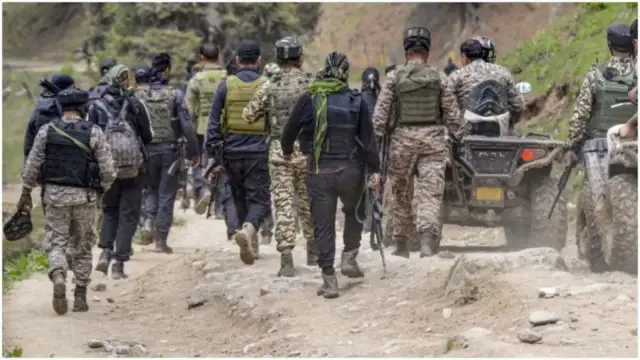Health alert: Sickle cell cases cross 10,000 in Rajasthan’s tribal areas
Sickle Cell Disease is spreading across Rajasthan's tribal districts, affecting over 10,000 people. The situation raises concerns about healthcare access and intervention

Sickle Cell Disease (SCD), a genetic blood disorder, has been identified as a significant health concern among the tribal populations in southern Rajasthan. Recent studies have highlighted its prevalence across various districts and tribal communities.
Prevalence Across Districts
A comprehensive cross-sectional study screened 36,752 tribal students from 1,006 Maa-Baadi centers and 243 hostels in five tribal sub-plan districts of Rajasthan. The overall prevalence of SCD was found to be 5.8%. District-wise data revealed the following prevalence rates:
Sirohi: 10.5%
Banswara: 7.42%
Udaipur: 6.53%
Pratapgarh: 5.51%
Dungarpur: 1.89%
Among the positive cases, 5.61% were heterozygous (carriers), and 0.17% were homozygous (affected individuals).
Tribal Community Impact
The study also examined the prevalence of SCD among different tribal communities:
Garasia Tribe: 13.81%
Bhil Tribe: 6.93%
Meena Tribe: 3.25%
The Garasia tribe exhibited the highest prevalence, particularly in the Kotda sub-district of Udaipur (14.49%) and the Abu Road block of Sirohi (12%).
Government Initiatives
In response to the rising prevalence of SCD, the Rajasthan government has initiated several measures:
Screening Programs: Comprehensive screening campaigns targeting individuals aged 0 to 40 years are being conducted in affected districts. Point-of-Care (POC) tests are utilized for early detection, followed by genetic counseling and the issuance of identification cards to positive cases.
Center of Competence: The Union government has designated RNT Medical College in Udaipur as a Center of Competence for Sickle Cell Disease. This center aims to provide specialized care, including prenatal diagnostic services, counseling, and early intervention units to manage complications associated with SCD.
Research Efforts
To better understand the genetic factors contributing to SCD severity, the Indian Council of Medical Research (ICMR) has included RNT Medical College in a multicenter study. This research focuses on identifying genetic variants responsible for recurrent and severe vaso-occlusive crises among the tribal population. These concerted efforts aim to mitigate the impact of SCD among Rajasthan's tribal communities through early detection, comprehensive care, and ongoing research.















